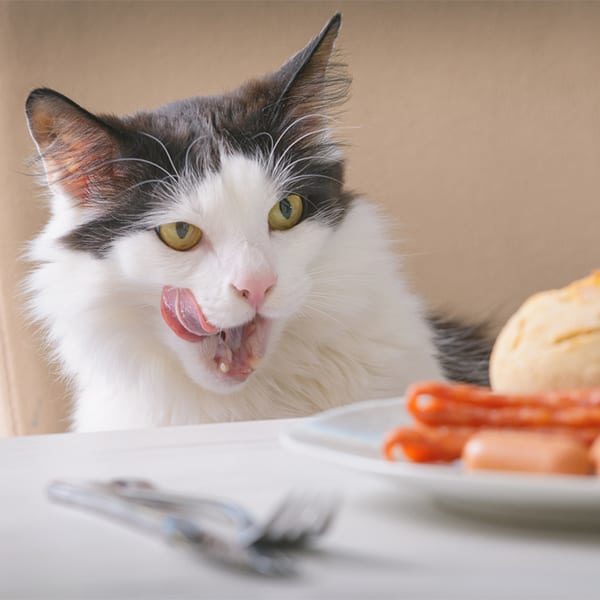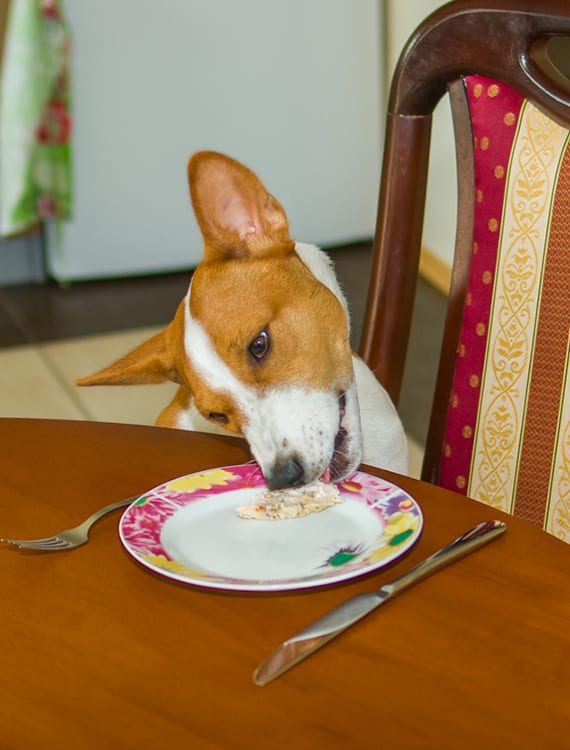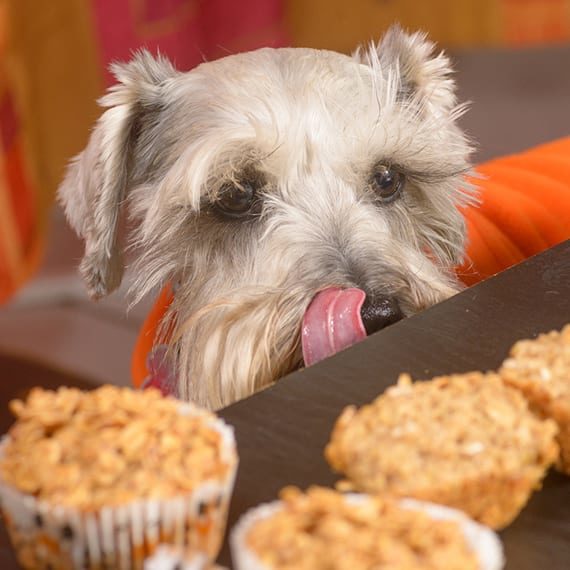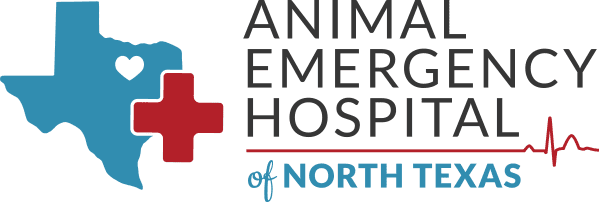If you think your pet is having an emergency,
please call us right away.

Thanksgiving Pet Safety in Grapevine
By promoting Thanksgiving pet safety, we hope to help prevent food-related health emergencies in dogs and cats. These types of emergencies are common occurrences during the holidays, when there are all kinds of tasty foods sitting around tempting our pets. Our emergency animal hospital has helped many pets through upset stomachs and bowel obstructions, and our goal is to see a decrease in such cases.
That being said, if you think your pet may have eaten something poisonous, don’t hesitate to contact our facility. A veterinarian is always available to help!
Safe Thanksgiving Foods
- Turkey: Most people who celebrate Thanksgiving have turkey on their table. A few pieces of turkey meat certainly won’t harm your pet, but do make sure that the meat is plain, thoroughly cooked, unseasoned, skinless, and without any trace of stuffing. Stuffing is often made with onions, scallions, or garlic, which are very toxic to pets. If you plan to have stuffing on the menu, consider cooking it separately from the turkey.
- Potatoes: Whether they’re scalloped, mashed, or baked, potatoes are safe for dogs and cats a long as they’re cooked well and do not include any butter, seasonings, onions, chives, or scallions. Plain is always the safest option.
- Green beans: It doesn’t hurt to give your pet a cooked green bean or two, as long as they are not cooked with onions, garlic, or butter.
- Brussels sprouts: If they’re cooked, unseasoned, and cut into small pieces, Brussels sprouts are safe for pets to eat.
- Mushrooms: Mushrooms from the store are safe for animal consumption; wild mushrooms are not. If you do decide to give your pet a mushroom, make sure it hasn’t been cooked with garlic or onions.
- Rice: White and brown rice are safe for pets if cooked and served plain.
- Carrots: Cooked carrots that are served plain and cut into small pieces are a safe snack for pets. However, cats should not eat raw carrots, which are too crunchy for their sensitive stomachs.
- Broccoli: Pets can eat broccoli if it’s cooked and plain, but we can’t promise they’ll actually want to eat it.
- Celery: Small amounts of celery are fine if they’re cut into small pieces, but too much can give cats diarrhea. Cats also react to celery leaves similar to how they react to catnip!
- Corn: Cooked corn off the cob (no butter, salt, or other seasonings) is also a safe addition to your pet’s dish, but corn on the cob can cause choking or create a blockage in the bowels.
- Cranberry sauce: A few small tastes won’t hurt, but avoid giving your pet too much—cranberry sauce contains quite a bit of sugar.
- Pumpkin: If it’s plain, pure pumpkin without any sugar added, it should be safe for your dog or cat in small amounts.
- Apples: Your pet is welcome to have a few bites of apple; just don’t let them eat the stem or the core.
- Cheese: Cheese is safe for dogs and cats in small quantities.
- Bread: A few bites of white bread or whole wheat bread aren’t a problem, but raisin bread should be off limits.


Thanksgiving Foods You Should NOT Feed Your Pet
- Raw/undercooked meat: Raw meat really isn’t safe for our pets, despite the fact that meat is an essential part of their diet. E. coli and Salmonella bacteria are commonly found in uncooked meats, and they can cause serious illness in pets as well as humans.
- Bones: Chewing on bones can pose all kinds of risks for pets, from chipping or cracking their teeth to causing choking or internal injury.
- Ham/Bacon: While your pet would absolutely love to steal a bite or two of ham and/or bacon, these meats are very high in sodium and fat. A little bit probably won’t hurt, but it’s best not to over-indulge them.
- Garlic and onions: Dogs and cats should never eat these vegetables. Garlic is 5 times as toxic to cats as it is to dogs, but both garlic and onions can damage the red blood cells and cause anemia. Onion powder and garlic powder are also dangerous.
- Grapes and raisins: Grapes and raisins contain compounds that can induce kidney failure in pets. If not treated quickly, this can be fatal.
- Chocolate: Dogs and cats should never have chocolate, even if it’s white chocolate. The stimulants that chocolate contains (caffeine and theobromine) can cause seizures, an irregular heart rhythm, and muscle tremors.
- Sugar-free baked goods: If sweet treats are sugar-free, they likely contain xylitol, a sweetener that’s extremely toxic to pets. Consuming too much can drastically lower your pet’s blood sugar and cause liver failure.
- Stuffing: Most stuffing recipes include onions and garlic, which are toxic to dogs and cats.
- Nutmeg: While your pet is probably not going to ingest any nutmeg, it still helps to be careful if you’re using it. Cats can handle very small amounts, but dogs have a harder time with it due to the myristicin contained in nutmeg. Myristicin can increase your dog’s heart rate and blood pressure and cause stomach pains and seizures.
- Milk and other dairy products: Dogs and cats don’t need cow’s milk in their diet, and because they can’t tolerate lactose very well, it’s best to avoid giving them any as a treat. Very small amounts should be safe, but don’t overdo it.
- Green bean casserole: Unfortunately, this casserole is too rich and contains ingredients (such as onions) that are harmful to dogs and cats.
